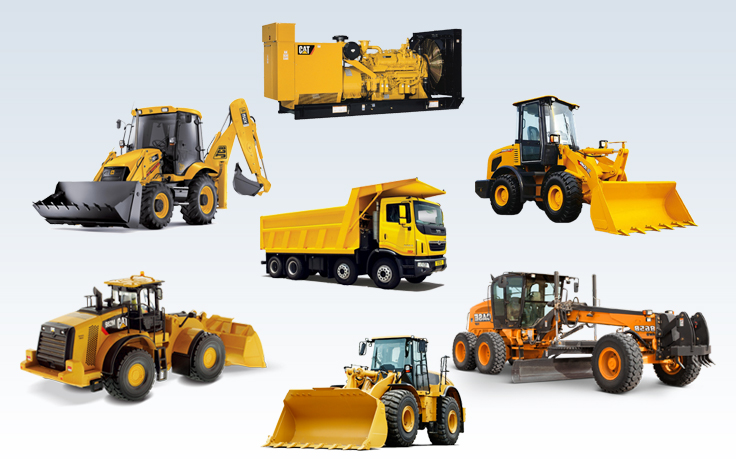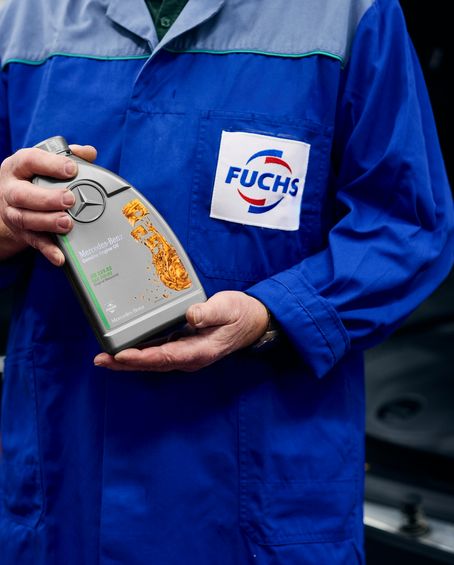The Challenges of Using Lubricants in the Construction Industry
The construction industry presents a number of unique lubricant challenges, in that it involves the use of expensive and sophisticated heavy-duty trucks and a variety of earth-moving equipment, amongst others, usually operating under severe conditions. In addition, maintenance is usually more difficult in the field than in a regular workshop.
In view of these challenges, it is critical that equipment downtime is still kept to an absolute minimum. This is largely dependent on having properly qualified maintenance technicians available, as well as ensuring that the equipment is well maintained, and that OEM-approved engine oils, transmission oils and coolants are used whenever possible.
Quite apart from automotive lubricants, most construction sites have plenty of industrial equipment requiring specialised lubricants, including conveyors, hydraulic fluids and industrial gearboxes. There are often also specialised applications, such as open-gear applications on mills at quarries, that require specialised lubricants.
There is also wide scope for a range of greases for trucks, earthmoving equipment and industrial equipment, including pin and bush, wheel-bearings, 5th wheel and multipurpose grease.
When it comes to choosing a hydraulic fluid, there are many different aspects to consider, pressure and temperature, but also dirt, energy consumption and viscosity. Here are some recommendations on efficient, economic lubrication and improving performance.
The correct hydraulic oil reduces energy loss especially, in terms of viscosity. An oil with lower viscosity is easier to ‘pull’ around the hydraulic system, thus reducing energy loss and saving money. Many people choose a high-viscosity oil out of habit in order to maintain performance when operating in areas of extreme temperature, but this is an area worth reflecting to achieve improved lubrication and lower costs. Usually, it is better to use an oil with the same viscosity as recommended by the pump manufacturer, but with a higher viscosity index which guarantees better performance at higher temperatures.
It is possible to eliminate the need for heaters in the hydraulic reservoir. Many technical systems are kept outdoors. For these systems, it is important to choose a hydraulic oil that can withstand low temperatures and eliminate the need for heaters in the hydraulic reservoir.
Heaters use energy and are often wrongly dimensioned, shortening the useful life of the oil. With the correct product, the systems will start even when the cold sets in. Moreover, this type of oil has a longer life and also reduces energy consumption.
Hydraulic oils with too high a viscosity cause problems in cold starts. A thick oil can damage the hydraulic pump, leading to breakdowns. The solution is to use lower-viscosity products. This ensures a reliable start during the cold season, with better lubrication the equipment will maintain its performance over time.
Dirt also increases the risk of operational disruptions in a hydraulic system. Choosing ester-based oils reduces that risk. Several of these products have a cleansing effect while also preventing the formation of varnish. Another advantage is that many ester-based oils have a longer life and better lubricity than traditional mineral oils.
Cleanliness reduces the risk of operational disruptions, especially in hydraulic systems with a high turnover rate. Just a small amount of dirt pushed through the system is enough to cause disruption or damage. It is therefore important to make sure the system is clean by using the correct filter.
Small amounts of water can cause problems. It is therefore vital to keep water away from the hydraulic oil. This means keeping the water content below 200 ppm in a mineral oil. Ensure that the system has a respiratory filter with a desiccant cartridge fitted. This prevents condensation from forming, but also filters out particles that can contaminate the oil.
Water causes problems, but engine oil is devastating. Just a few drops can completely nullify the properties of the hydraulic fluid. The fluid loses its ability to separate water, which instead binds with the fluid and worsens performance. This is why it is essential to always use separate refill containers for different lubricants.
Degreasers can also ruin the hydraulic oil. It is important to rinse any machine parts that have come into contact with degreasers. Also, do not pressure wash sensitive parts in a recently degreased system as this can push water and degreaser into gaps and openings and contaminate the oil.
A mineral oil that’s correctly maintained – and works at a maximum temperature of 40 degrees Celsius – has a useful life of around 20 years. The useful life is halved for every ten degrees increase above 70°C. There is much to be gained by keeping the temperature down. This is most easily done by regulating cooling with a thermostat, but also by ensuring the air or water cooling system is clean and working properly.
Biodegradable products offer better performance. Above all, these products have less of an impact on the environment in the event of spillage or leakage. Another advantage is that many biodegradable products offer better technical performance than normal mineral oils, as well as a longer useful life.
H1 oils must be used for contact with food. In companies that handle food, contamination is a particularly sensitive matter. There are hydraulic oils that are approved for contact with food – at levels of no more than 10 ppm. These products meet the international NSF H1 standard and are known simply as H1 oils.
The diesel effect ruins hydraulic oil. Low pressure in a system can cause a diesel effect, ruining the oil. In low pressure systems, gas bubbles can form in the oil. In the diesel effect, these bubbles then ignite and cause a micro-combustion, forming nitrogen oxides. Over time this darkens the oil, it starts to smell acrid and performs worse. Low pressure can arise if the oil is too thick or if the hydraulic pump suction pipe is under-dimensioned, or if the pump is too high up in relation to the hydraulic reservoir.
Large drops in pressure should be avoided. Pressure drops in a hydraulic system produce a heating effect that shortens the life of the oil. A pressure drop can occur if the overflow valve is left open and the pump doesn’t work properly. This can be avoided by fitting the valve with pressure control, which will prevent it being left open and driving up the temperature.
By Mitch Launspach, Commercial Sales Manager – Inland, FUCHS Lubricants SA



